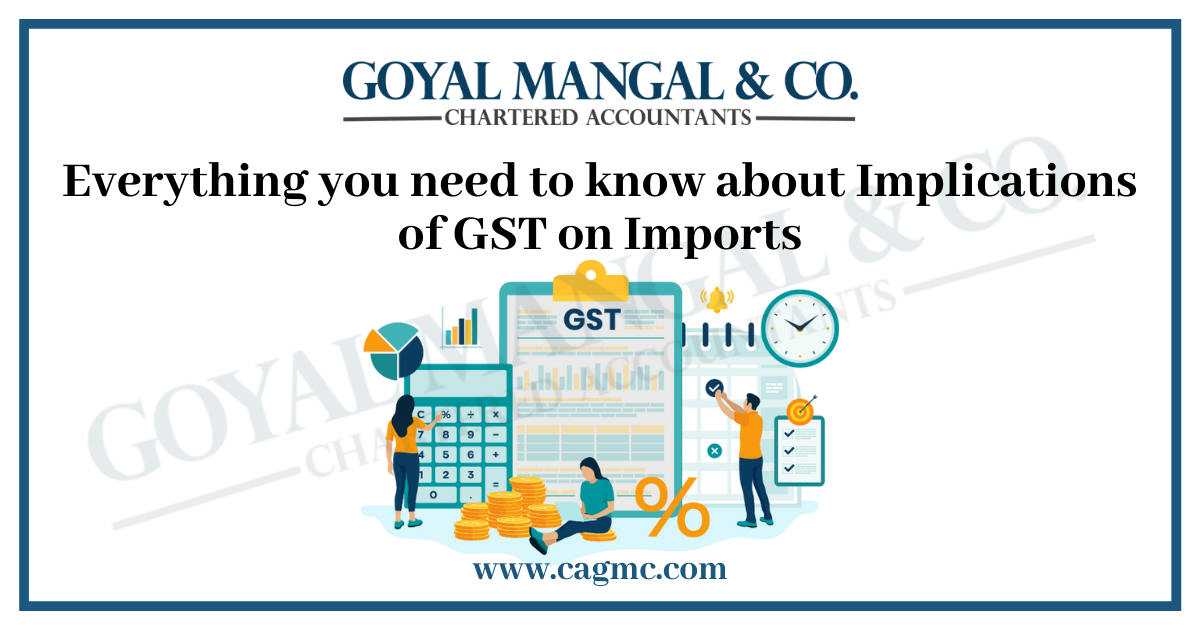
We are the world’s fastest-growing economy. India ranks the seventh number in the world for its economy. The most important factor that ensures the economic growth of a nation is trade that comprises imports and export. Hence, a nation to have a good economy should maintain its trade performance at domestic and international markets. After the implementation of the Goods and Services Tax (GST), a change was brought to the market structure of India and significant changes have come in the import and export of goods.
| Table of contents |
Introduction
Imports and exports play a crucial role in determining and ascertaining the economic growth of a nation. Although imports are discouraged, however, no economy in the world is self-sufficient to fulfill the consumption needs. Indian imports valued approx. $390 billion in 2020-21.
Types of Import

- Import of goods: The Integrated Goods and Services Tax (IGST) Act, 2017 defines ‘import of goods’ as bringing goods to India from abroad. Import within India is considered as an inter-State supply and integrated tax in addition to the customs duties is applicable.
- Import of services: Import of services’ are defined under the IGST Act, 2017, it refers to the supply of any service where the supplier is located outside India, the recipient is located in India and the place of supply of service is in India
What is the import of goods and services?
The business in goods and services shall be considered as import when the-
- Supplier of goods and services is located outside the territory of India,
- The recipient of goods and services is located within the territory of India,
- Place of supply of goods and services is within the territory of India, and
- Supplier of goods and services, as well as the recipient of goods and services, are not merely establishments of a distinct person;
Types of GST
The GST is classified into the following types depending on the supply i.e. intrastate or interstate:

Application of GST on import of goods
According to the provisions of the GST Act, all imports into India are considered as inter-state trade and tax is applicable on it. Apart from attracting GST, the importer of goods is also subject to Customs Duties. The GST applies to imports along with the Customs Duty, the GST Compensation Cessis levied on luxury goods under the provisions of the Goods and Services Tax (Compensation to States) Cess Act, 2017.
Application of GST on import of services
Service importers have to pay GST on Reverse Charge Mechanism (RCM) which means that the service recipient in India is liable to pay tax. After GST is paid on an RCM basis the credit can be availed.
Tax structure and input tax credit in import under GST
| Tax Structure | IGST and Basic Custom Duty (BCD) shall be levied |
| Input Tax Credit (ITC) | ITC of IGST is permitted
ITC of BCD is not permitted |
Input Tax Credit’ implies to claim the credit of the GST paid on purchase of Goods and Services used for the furtherance of business. The mechanism is the backbone of GST and an important reason behind enactment of the GST Act.
Through GST a single tax levied across India and everybody is able to take benefit of the same and there is seamless flow of credit.
Calculation of GST on imports
The goods are classified under the Harmonized System of Nomenclature (HSN) Code System as per which the customs duties and tax rates that shall be levied are determined.
The GST rate is levied on the total product value [+] the total customs duty imposed on the imported goods.
Let’s understand it with the help of an example-
| The assessable value of goods imported in India- Rs. 100 |
| Basic Customs Duty- Rs. 10 (10% of the Assessable value of goods imported) |
| Value for levying IGST- Rs.110 |
| IGST Tax Rate- 18% |
| 18% of Rs. 110 = Rs. 19.80 |
| Total taxes = Rs. 29.80 |
Goods imported exempted from GST
- Goods imported through business located in a Special Economic Zone
- Goods imported for India’s internal security forces
- Research equipment imported for institutions
- Goods imported from Nepal and Bhutan
Impact of GST on Import
- Inter-State Supply: Imports in India attract the IGST in addition with BCD and other surcharges are also applicable.
- Import of Services: Tax payment liability on service receiver and provider by persons residing outside India.
- Transaction Value: The Additional duties of Customs, referred to as Countervailing Duty (CVD) and Special Additional duty of Customs (SAD), would be replaced with the levy of IGST, having a few exceptions.
- Refund of Duty: According to the new regime, the tax paid during the import is available as a credit under the model of ‘sale and import’. The refund of duty is applicable after meeting the specific compliance requirements.
Final words
According to the provisions of the GST Act, the importer of the goods and services is liable for collecting and depositing GST. The importers have to pay the GST and are liable to pay the returns according to the Indian Customs Act.


